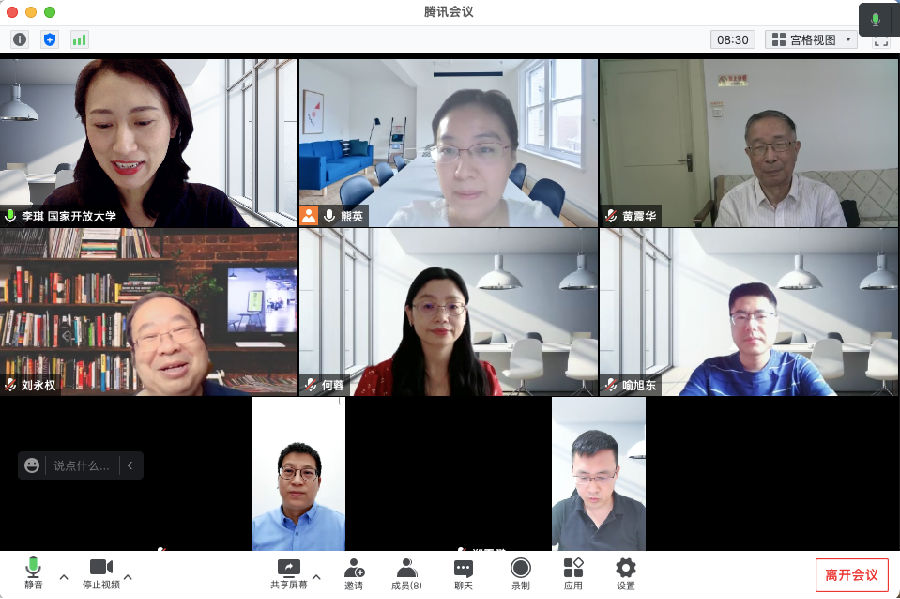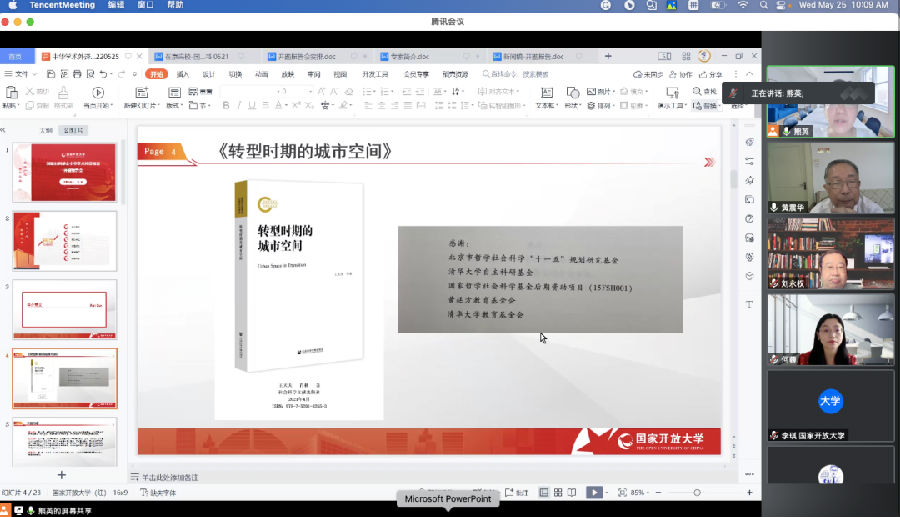 On 25 May 2022, the Open University of China (OUC) held a meeting, on-site and by video link, to discuss proposals for the translation of Urban Space in Transition, part of the 2021 Chinese Academic-works Translation Project.
On 25 May 2022, the Open University of China (OUC) held a meeting, on-site and by video link, to discuss proposals for the translation of Urban Space in Transition, part of the 2021 Chinese Academic-works Translation Project.


Professor Huang Zhenhua, former vice president of the University of International Business and Economics; He Rong, a researcher with the Chinese Academy of Social Sciences; and Professor Liu Yongquan of the OUC, were invited as expert reviewers, while Professor Stephen J. Ceccoli of Rhodes College in the United States was invited as the foreign reviewer. The meeting was presided over by Professor Huang Zhenhua.
In the meeting, Xiong Ying, a teacher in the Faculty of Foreign Languages and the project leader, introduced the contents, academic value, and international significance of the translation of Urban Space in Transition. She also covered the academic influence of its publishers, the Social Science Academic Press (China), and Routledge, the world's leading academic publisher in the Humanities and Social Sciences. She focused on the planning and arrangement of the project, as well as improvements to planning and the translation itself suggested by anonymous evaluators.
The participating experts offered their congratulations on the approval of the project and agreed that the translation and international publication of the book would help educate the world in Chinese history, enhance China's image, and bring Chinese academia to greater prominence. They also analysed the feasibility of the schemes in the proposal, and gave advice on upcoming translations.
This project was approved by the National Social Science Fund of China, and marked the first time for the OUC to be granted with funding of this type by the Fund. The project mainly supports academic works that represent China's academic standards and frontiers, and reflect Chinese culture. The funded works will be published in foreign languages by authoritative foreign publishers and through mainstream distribution and communications channels, giving prominence to the Fund, deepening academic exchanges between China and the rest of the world, and expanding the international influence of Chinese academia.
To conclude, members of the project said they would take the expert advice, proceed step-by-step according to plan, and meet expectations.
By Faculty of Foreign Language, OUC